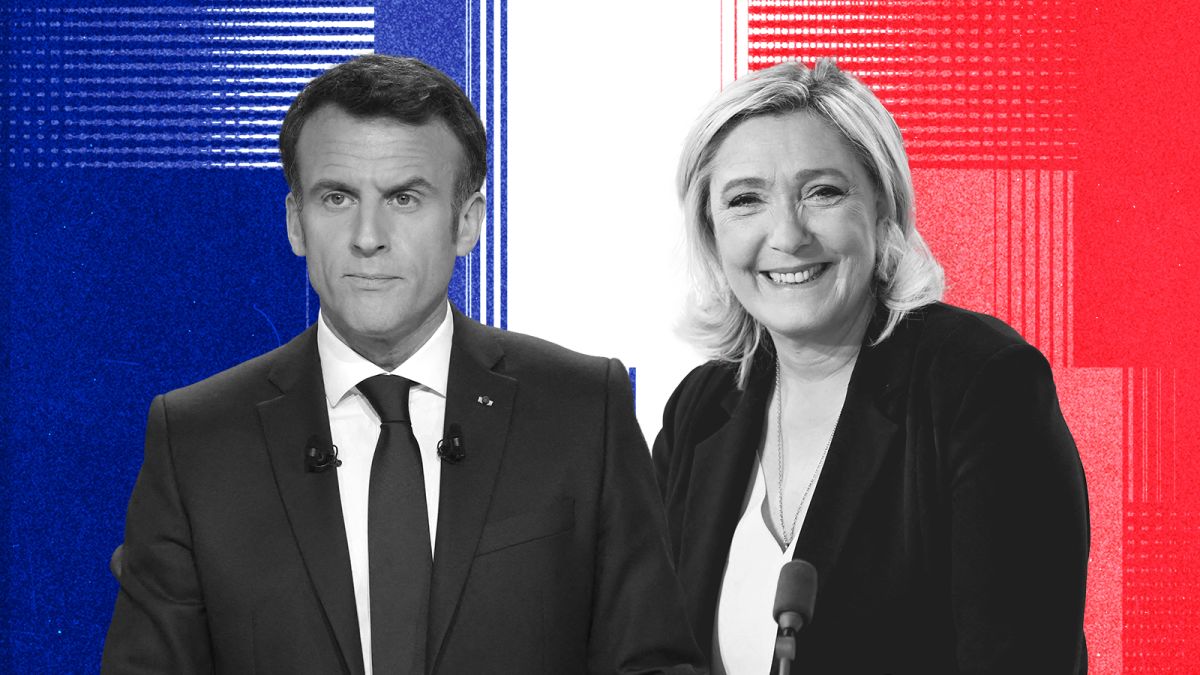Marine Le Pen, a far-right nationalist running for the presidency for the third time, has never been closer to the Élysée Palace, a conclusion that would send shockwaves throughout the West.

It wasn’t only millions of TV viewers in France who were watching President Emmanuel Macron and Marine Le Pen spar in a fiery discussion this week ahead of Sunday’s election.
The 450 million residents of the European Union, as well as officials from Washington to Kyiv, were watching attentively because this election may have seismic consequences for them.
The far-right nationalist Le Pen, who is running for president for the third time, has never been closer to being the first woman to live at the Élysée Palace, which has been the official house of French presidents since 1848.
It’s a result that, until recently, appeared impossible and would send shockwaves across the West, granting Russian President Vladimir Putin a big triumph in his quest to recast the balance of power in Europe, despite his military’s troubles in Ukraine.
Macron, who is seeking re-election, is a former banker and liberal centrist who rose to prominence five years ago with the launch of a new political party. He came to power with lofty intentions, eclipsing traditional center-right and center-left powerhouses and attempting to place Paris as a European leader in the Western alliance, but his time has been marred by internal opposition, the epidemic, and now a major conflict on the continent.
Although he is leading in the polls, his technocratic, detached demeanour is not universally admired. At a campaign rally on Thursday, a lady informed President Trump that the election on Sunday was a choice between “plague and cholera.”
Since the duo advanced from the first round earlier this month, opinion polls have shown Macron leading by approximately ten percentage points, at 55 percent. But that’s a lot closer than it was when the two previously ran for president in 2017.
Le Pen, a fervent nationalist and Eurosceptic, wants to drastically alter France’s position in the European family of nations by terminating France’s senior leadership in NATO, cutting payments and legal deference to the EU, limiting non-French people’s access to social benefits, and advocating a radical rapprochement with Russia.




















